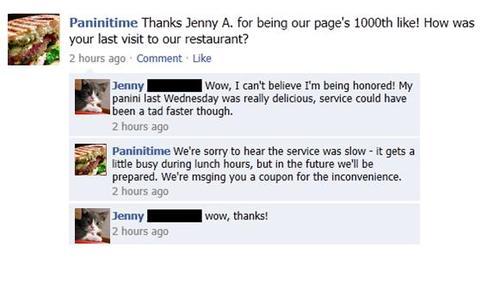Social Media can be a double edged sword, in terms of privacy. On one end, there have been numerous accounts of crime that originates from what a victim posts on their Facebook Timeline or what they Tweet – it can be as innocent as telling everyone that you’re going on vacation for a week, which could result in home burglary. But on the other end, your information could help businesses get the goods that you’re asking for, and they can better understand today’s trends. But first of all, let’s back up and see what kind of information people put (intentionally or unintentionally) on their social media accounts, and how their data is used by others.
Have you ever realized that the ads in the corner on your Facebook page feature that new shirt you’ve been dying to get? It’s not a coincidence – the sites you visit gather information about you. What type of information? Basically everything a stranger in turn would need to know to approach you. The basics -what’s your name, occupation, where you live, phone, email- as well as which ads you click, what time and days are you on certain sites, what your search queries are. Yep, that’s a lot of information that was given and can be found with little effort.
That’s why privacy has been such an issue with social media. This is especially true with younger generations using social media, as cyber-bullying and online conversations have exploded onto the scene with the internet. Parents no longer worry about stranger danger as much as they worry about their children talking to strangers online (which is so easy, since privacy controls aren’t being used.) Our private lives are becoming much less private nowadays, and it’s partially our fault.
As a customer, you want to protect yourself as much as you can to avoid situations like home burglary. Most Facebook users don’t make use of the privacy controls – if your posts aren’t private, don’t count on Uncle Tim as the only one who will see the picture of the new car you got. Being careful about what you post and where you post, and your privacy settings, is an easy way for consumers to withhold information on their end.
What do you think? Should social media security be tighter?

 Being on social media isn’t hard, but being on social media is (haha, confusing? read on, my friend.) Just having Facebook and Twitter and other outlets isn’t enough – your brand has to be actively seeking to enter into conversations with your customers every day. It’s important to not only answer feedback in a timely manner, but to also be the one asking for feedback. When a company asks customers for their opinions, it’s telling consumers that the business cares and wants to improve. Engaging with customers is one of the major steps that companies who are succeeding in social media use.
Being on social media isn’t hard, but being on social media is (haha, confusing? read on, my friend.) Just having Facebook and Twitter and other outlets isn’t enough – your brand has to be actively seeking to enter into conversations with your customers every day. It’s important to not only answer feedback in a timely manner, but to also be the one asking for feedback. When a company asks customers for their opinions, it’s telling consumers that the business cares and wants to improve. Engaging with customers is one of the major steps that companies who are succeeding in social media use.

